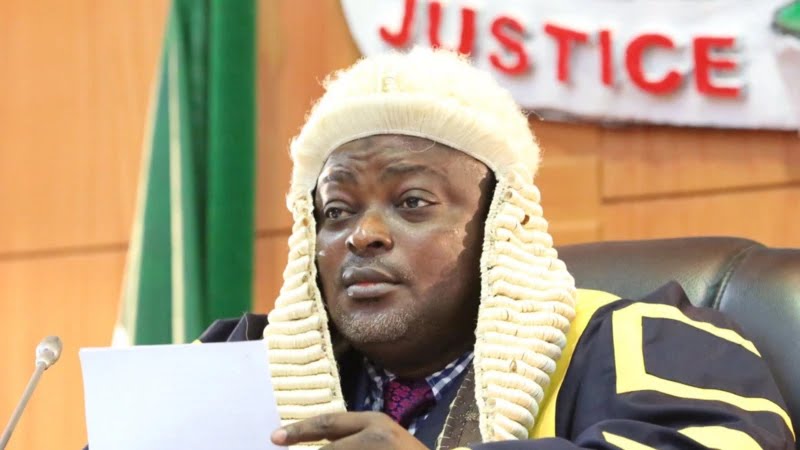
The Lagos State House of Assembly, in a significant development, impeached Speaker Mudashiru Obasa yesterday over allegations of gross misconduct.
Obasa, who was on a trip to the United States at the time, faced accusations of financial mismanagement, authoritarian leadership, and lack of transparency in the Assembly’s affairs. His removal, which triggered celebrations among lawmakers, marks the end of his tenure as Speaker, a position he had held since 2015, representing Agege Constituency I.
The impeachment motion was introduced by Femi Saheed, representing Kosofe Constituency II, citing Section 92(2)(c) of the 1999 Constitution. Saheed alleged that Obasa’s leadership was marred by consistent lateness, intimidation of members, and high-handedness. Aro Moshood Abiodun (Ikorodu II) seconded the motion, and 32 out of the Assembly’s 40 members supported the decision through a voice vote.
Following the impeachment, Mrs. Mojisola Lasbat Meranda, the Deputy Speaker and representative of Apapa Constituency I, was elected as the new Speaker, making history as the first woman to hold the position. Fatai Mojeed (Ibeju-Lekki I) was elected Deputy Speaker.
In the aftermath, the Assembly suspended its Clerk, Olalekan Onafeko, replacing him with Abubakar Taiwo Ottun in an acting capacity. The impeachment proceedings took place under tight security, with police cordoning off the Assembly premises.
A group of protesters from Obasa’s constituency arrived at the Assembly but were detained by security personnel. Meanwhile, Obasa’s portraits were removed from various locations in the Assembly, and staff members were seen smiling as events unfolded.
Allegations Against Obasa
Obasa faced a series of allegations, including financial misconduct. Key accusations included:
Misappropriating ₦44 billion for vehicle purchases.
Allocating ₦15.6 billion for office construction despite functional existing facilities.
Awarding contracts to himself using proxies.
Spending ₦80 million on training allowances for lawmakers’ wives in Dubai.
In 2020, Obasa was questioned by the Economic and Financial Crimes Commission (EFCC) for allegedly operating over 60 bank accounts. More recently, he was accused of spending ₦17 billion on constructing a gate to the Assembly complex and ₦200 million on a thanksgiving service.
The Assembly also faced criticism in 2023 after rejecting 17 of 39 commissioner-nominees, sparking concerns over a possible rift between Obasa and the governor.
Another contentious issue under Obasa’s tenure was the proposed 2024 Lagos State Local Council Administration Law. The bill aimed to replace 37 Local Council Development Areas (LCDAs) with the constitutionally recognized 20 Local Government Areas (LGAs), leading to public outcry.
Obasa’s impeachment signals a new chapter for the Lagos State House of Assembly, as it grapples with restoring credibility and public trust.


